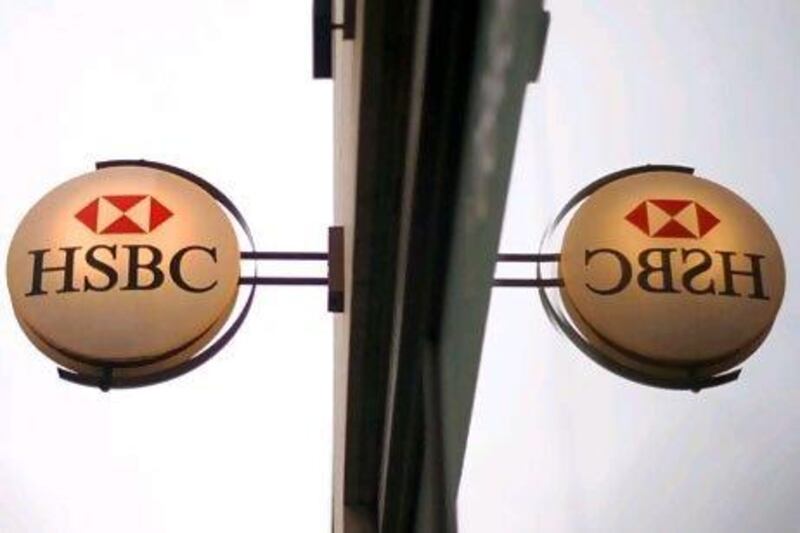HSBC Middle East made fewer provisions for bad debts last year, helping the country's biggest international lender to rack up a big rise in profits.
The Middle East unit of the banking giant reported a 67 per cent increase in profits to US$1.4 billion (Dh5.14bn) as debt restructurings of big UAE companies eased off.
At a global level, HSBC reported full-year pre-tax profits of $21.8bn at a global level, an increase of 15 per cent on a year earlier.
However, stripping out the effect of $3.9bn worth of mark-to-market gains on its own debts, the bank's underlying profit fell by 6.3 per cent.
Despite a $900 million cost-cutting drive that spurred the bank to close 16 businesses in various countries last year, costs rose across the bank by 10 per cent, which it attributed to higher staff costs in faster-growing markets.
Meanwhile, Stuart Gulliver, the HSBC's chief executive, was awarded £5.9m(Dh34.3m) in bonuses and share options as part of a total pay packet of £7.1m.
It has been a difficult year for global banks, many of which have felt the effects of the euro-zone sovereign debt crisis. Dubai banks have also fared badly as they dealt with the mounting cost of bringing the emirate's financial crisis to heel.
But HSBC reported an easing of bad debts at its Middle East operations.
Provisions for bad debts fell 53.2 per cent to $293m, which the bank attributed to fewer restructurings among its large corporate customers in the UAE.
"Loan impairment charges and other credit risk provisions fell in the Middle East … due to the non-recurrence of restructuring activity for a small number of large customers," the bank said.
It reported little impact from the Arab Spring.
"Although significant unrest and political changes were witnessed in the Middle East and North Africa in 2011, the majority of the group's exposures in the region were concentrated in our associate investment in Saudi Arabia and in the UAE, where the respective political landscapes remained stable and economic growth continued to recover."
However, renegotiated loans increased by 42.2 per cent to $2.6bn, the third-highest regional total worldwide after Europe and North America. HSBC was among the banks that signed a $25bn restructuring deal with Dubai World in March.
The bank's wide-ranging cost-cutting exercise started last year was beginning to bear fruit, said Simon Cooper, the chief executive of HSBC Middle East.
HSBC made two rounds of lay-offs during the year in the region, closing its retail banking operations in Kuwait and its retail brokerage in the UAE after trading volumes collapsed.
"This was the year that we saw our strategic plan for the region come to fruition, returning HSBC to sustainable growth, re-engineering our business to improve efficiency and to better serve our customers, and managing our client and branch portfolio," Mr Cooper said.
In Qatar, the bank also closed its Islamic banking operations, HSBC Amanah, after an order by the country's central bank banning conventional banks from running Sharia-compliant operations.
twitter: Follow our breaking business news and retweet to your followers. Follow us





